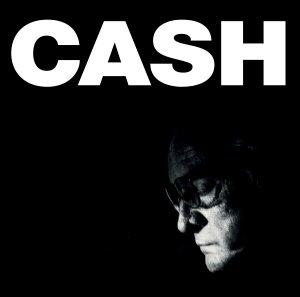
- Format: MP3

Johnny Cash's fourth project with producer Rick Rubin continues on the same path as many of their previous releases: Cash's warm and rumbling baritone over minimal production and gentle duets with some surprising guests. One of the things that sets American IV: The Man Comes Around apart from the others is Cash's song selections. The success he experienced with his previous interpretations of contemporary songwriters (Soundgarden's "Rusty Cage," Nick Cave's "The Mercy Seat") is applied to this album with varying degrees of success. His throaty reading of Nine Inch Nails' "Hurt" easily fits into his "Man in Black" persona, and the spiritual conviction underlying Depeche Mode's "Personal Jesus" is certainly powerful. Unfortunately, the inclusion of "Bridge Over Troubled Water" (featuring a lost- sounding Fiona Apple) and a passionless snooze through the Beatles' "In My Life" should have been so much stronger (given the subject matter of both songs and Cash's prolific life story). One of the reasons his previous covers were so successful is that in the past he had chosen some pretty obscure songs (Bonnie Prince Billy's "I See a Darkness" and Beck's "Rowboat," to name a couple) and reinterpreted them with his unique perspective and unmistakable voice. However, there is really no need to hear his versions of the Irish standard "Danny Boy" or the clunky rendition of Sting's "I Hung My Head," since something about them just doesn't fit — either Cash wasn't entirely comfortable with the song or the performance was never fully realized. Luckily, the new songs Cash wrote for the album are pretty strong, and his cover of the standard "We'll Meet Again" is among the best versions of the song ever recorded. It is a relief to hear that although Cash's voice is clearly older and not the booming powerhouse it was in the earlier Sun and Columbia days, he's still got some punch left in him, and the wisdom he's gained in his later life seeps through between the grooves, revealing a man who has lived through it all and lived to tell the tale.